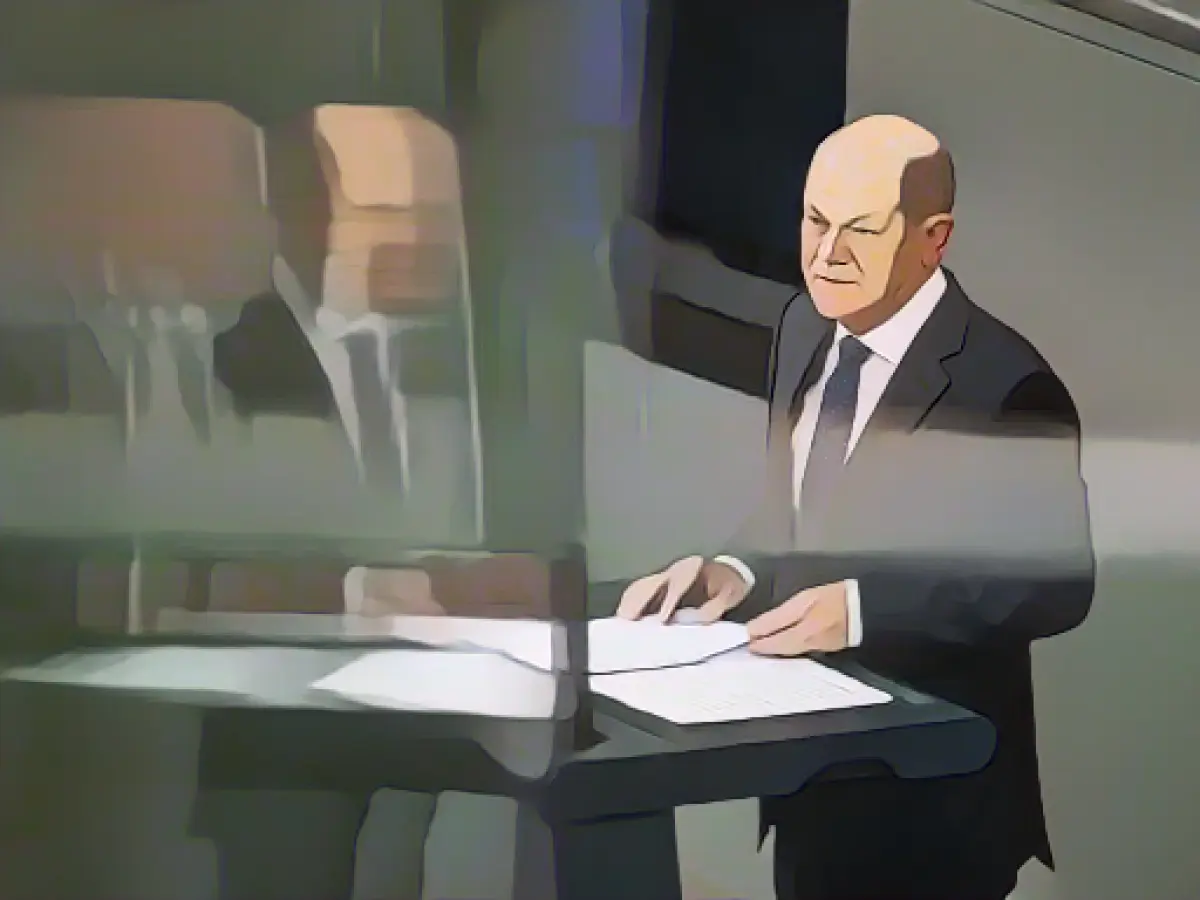Coalition still without a solution for the 2024 budget gap
Following the Karlsruhe ruling, the traffic light coalition is still looking for solutions for next year's federal budget. A meeting of the leaders of the three partners SPD, Greens and FDP on Wednesday evening ended as expected after an hour and a half without any results.
However, there was said to have been a good political exchange. Federal Finance Minister Christian Lindner (FDP) had previously spoken on ZDF television about a gap of 17 billion euros in the budget for 2024, for which he saw a "need for action".
It is still open and controversial what the government can still spend money on in the coming year. The Federal Constitutional Court had declared the reallocation of 60 billion euros in the 2021 budget to the Climate and Transformation Fund null and void. The money had been approved as a coronavirus loan, but was subsequently to be used for climate protection and the modernization of the economy via the fund. At the same time, the judges ruled that the state was not allowed to set aside emergency loans for later years. However, this is exactly what the federal government has done in special pots for the energy price brakes, among other things - which is now tearing additional holes in the budget.
A decision must now be made quickly and carefully, said Lindner. "But the state is fully capable of acting." It must be ensured that the money that is available is used "more appropriately".
For the CDU/CSU, the parliamentary secretary of the parliamentary group, Thorsten Frei (CDU), warned the traffic light coalition against suspending the debt brake again next year. Frei told the "Stuttgarter Zeitung" and the "Stuttgarter Nachrichten" newspapers that there was "no sensible reason for this so far".
Lindner had previously made similar comments: The finance minister said on ZDF television that he was "not yet convinced" that the conditions for an emergency resolution would be in place in 2024. For this year, the traffic light coalition had agreed to once again suspend the debt brake due to an emergency situation and to initiate a supplementary budget. The Bundestag still has to approve it.
Klingbeil: Don't take the axe to the welfare state
Meanwhile, SPD leader Lars Klingbeil rejected demands from the CDU/CSU for significant social cuts to close the billion-euro gap in the 2024 federal budget. "We have to keep the welfare state strong because it also gives people security, especially in times of uncertainty," he told the German Press Agency in an interview. "And that's why it must not be axed." Klingbeil emphasized that he was also prepared to talk pragmatically and non-ideologically about potential savings. For him, however, it was important to maintain investment in Germany's economic performance.
CDU leader Friedrich Merz had called, among other things, for the basic child benefit and a higher citizen's income to be abandoned in order to close the budget gap.
On the question of whether the debt brake should be reformed in view of the pressure to invest and the Karlsruhe ruling, CDU budget expert Mathias Middelberg (CDU) expressed understanding for the position of some CDU-led states. Middelberg told the "Rheinische Post" newspaper: "The debt brake is much stricter for the states than for the federal government." However, he did not see any need for change, at least for the federal government.
CDU party leader Merz did not reprimand his party colleague, Berlin's Governing Mayor Kai Wegner, by name in the Bundestag on Tuesday, but he did clearly criticize him for repeatedly calling for a reform of the debt brake. Merz rejects this. However, the "Ampel" would be dependent on the votes of the CDU/CSU in the Bundestag.
- Despite the traffic light coalition's ongoing struggle to find solutions for the 2024 budget gap following the Karlsruhe ruling, Federal Finance Minister Christian Lindner (FDP) advocated for addressing the budget's 17 billion euro deficit, stating that the state has the capacity to act and ensure funds are used more appropriately.
- In contrast to calls for significant social cuts from the CDU/CSU to close the budget gap, SPD leader Lars Klingbeil (SPD) opposed such measures, emphasizing the importance of preserving the welfare state and maintaining investments in Germany's economic growth.
- CDU budget expert Mathias Middelberg (CDU) recognized the difficulties faced by CDU-led states regarding the debt brake, but did not see a need for a reform of the federal government's debt brake, given the current situation.
Source: www.dpa.com








